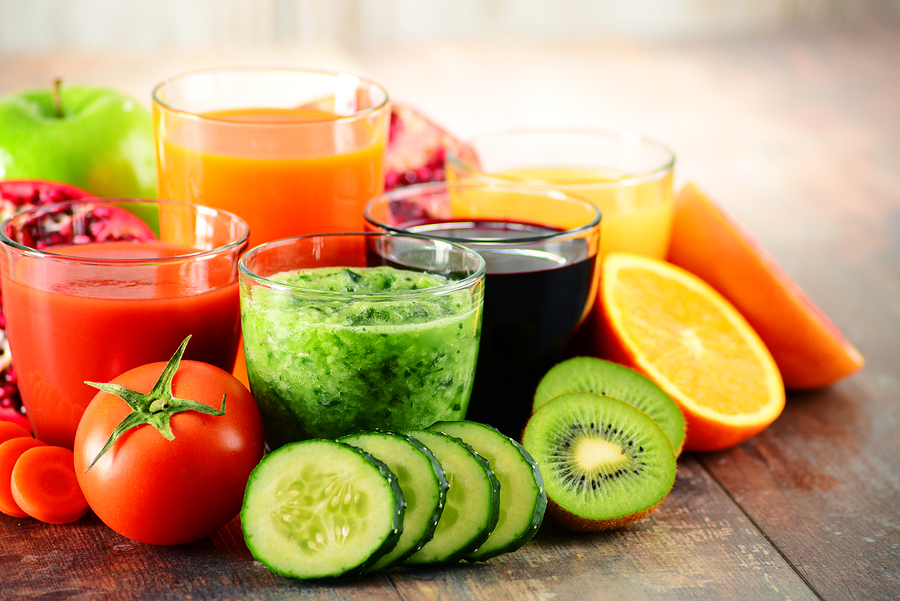With a plethora of diet, cleanse and workout options to choose from as a means of losing weight or getting healthy, going vegan is one of the more dramatic and life-altering choices. The first point to recognize is that veganism is a movement. On the Vegan Society website, the movement is defined as “a philosophy and way of living which seeks to exclude—as far as is possible and practicable—all forms of exploitation of, and cruelty to, animals for food, clothing or any other purpose; and by extension, promotes the development and use of animal-free alternatives for the benefit of humans, animals and the environment. In dietary terms, it denotes the practice of dispensing with all products derived wholly or partly from animals.” But, you should also know that you can participate in a vegan diet without adhering to the rest of the vegan philosophy. If you’re just looking to lose weight or get healthy, going vegan can be a solid option and it may have nothing to do with your opinions on the use of animal products.
With that said, in dietary terms, the vegan diet prevents you from consuming meat, fish, poultry or animal products of any kind – that means no eggs, dairy, honey, etc. If you’re also going vegan for philosophical and ethical reasons, then you cannot use any products derived from animals in any way – no leather, fur, wool, silk or soaps that come from animal products.
That’s the core of the diet and the only hard and fast rules about it, which is why it’s a tricky diet to follow. This especially depends on your dietary background – if you grew up eating lentils, chickpeas and leafy greens everyday then this diet will be easy for you to pick up. But, if you don’t even know what lentils are, then this will be a real challenge. Going vegan is only going to help you lose weight or get healthy if you do it right. There are plenty of vegan-friendly processed junk foods out there and turning to those foods is the biggest mistake people make when they go vegan. The best way to do it right is to follow one of many, many guides available on the Internet or in published books. The resources for going vegan are plentiful, so don’t do it on your own.
Before you go vegan, you should know a thing or two about what to expect. One of those things is that you may need to start taking supplements and vitamins. Vitamin B12 will be the most common supplement for vegans as it only occurs naturally in animal foods. People who go vegan without doing their research miss this critical point and you want to keep healthy on any diet, so be sure to stock up on B12 supplements and fortified foods. In addition, you may find it difficult to get enough iron and might need an iron supplement. If you’re used to most or all of your meals including meat, then you’ll have your work cut out for you to ensure you consume enough protein, but it certainly occurs naturally in soy, beans, lentils, quinoa and a few other options so it is definitely possible. While it’s incredibly easy to turn to soy products when going vegan or vegetarian, be mindful of your soy intake. The jury is still out on how exactly soy affects your body, but too much is definitely not good for you. Many soy products in grocery stores these days are processed and not healthy options, so do your research, read your labels and watch your soy intake.
On the losing weight and healthy lifestyle front, going vegan is a great way to do both. Vegans typically consume considerably less calories as many high-calorie foods are no longer an option and fruits and vegetables have little to no calories. Of course, if you trade meat, eggs and dairy for junk food, losing weight is unlikely and getting sick is more likely. So the weight loss and health benefits will only appear if you do the diet right.
Aside from all the health-critical information, going vegan is also a lifestyle change – even if you aren’t changing your philosophies on meat and using animal products. If you aren’t used to reading food labels and keeping track of how many grams of protein and iron you’re consuming everyday, then that’ll be a challenge at the start. However, you’ll probably find that after a month or two, you’ll get used to it and it’ll all become second nature. You’ll also start to simply memorize how much protein a cup of lentils has, so eventually you won’t have to keep close watch.
Beyond the grunt work, the people around you will probably start asking you annoying questions about your new diet. The best responses you can have are to express that this diet is for you and your personal benefit; you’re not looking to force it on anyone else or change the way others think. People generally back off the topic once they feel like you’re confident in your own decisions.
Another point of consideration about the vegan diet is that one of the major reasons people eat unhealthy is because it’s cheaper, but going vegan could be just as cost-efficient. Meat is one of the most expensive items at the grocery store, so eliminating that cost certainly keeps you on a cost-effective budget for your diet.
So take a step back and consider all this information about the vegan diet. Remember that you don’t have to start all at once; you can gradually transition if that’s easier. It’s certainly something you can try and decide later whether or not it works for you.
